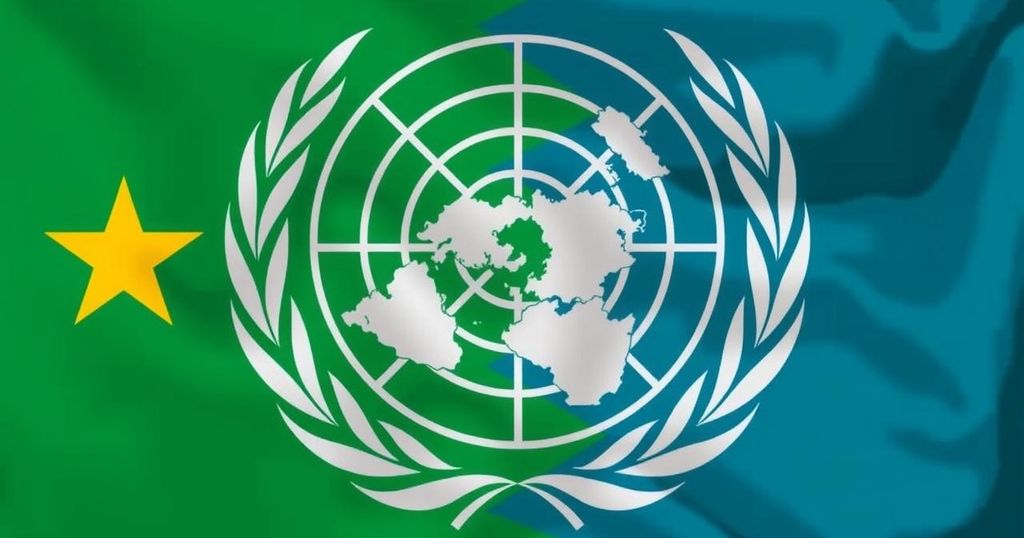The Failed Arms Embargo: Ongoing Violations and State Accountability in South Sudan

The UN arms embargo imposed on South Sudan in 2018 has failed to halt government procurements of military supplies, amid ongoing human rights violations. A deal between South Sudan’s military and a UAE company highlights continued arms flows into the country, with officials exhibiting a troubling lack of accountability. Reports illustrate a government propensity for state-sponsored violence, contradicting statements regarding peaceful engagements. The credibility crisis deepens as discussions of military leadership changes surface, showcasing the disconnect between government assertions and civilian experiences during the ongoing conflict.
The imposition of an arms embargo by the United Nations Security Council (UNSC) on South Sudan in 2018 has not effectively curbed the government’s acquisition of military supplies nor the ongoing commission of human rights abuses. Despite the embargo’s intent to restrict arms flow, government officials are alleged to have continued secret transactions involving weapons and military hardware. A recent inquiry from the UN in 2023 highlighted the persistent violations tied to key government figures, showing a lack of accountability for their actions. Evidence of ongoing arms procurement came to light with reports detailing a deal between the South Sudan People’s Defense Forces (SSPDF) and the Dynamic Defense Solutions FZE from the United Arab Emirates (UAE). While officials from the SSPDF denied the existence of a formal agreement, reports indicate meetings took place with representatives from the UAE company, leading to questions regarding the nature and intent of these discussions. The situation is further complicated by a history of threats made by government officials against demonstrators, reinforcing claims of a repressive regime that prioritizes military strength over the welfare of its citizens. Notably, despite assurances regarding the handling of protests with restraint, the government has demonstrated a readiness to deploy lethal force against civilians. Recent allegations also reveal discrepancies concerning leadership changes within the military, reflecting poorly on the government’s credibility. As state-sponsored violence envelops South Sudan, the gap between official declarations and practical realities widens, casting doubt on the government’s commitment to peace and stability. As the UNSC’s arms embargo struggles to take effect, it has become increasingly clear that the measures intended to disarm a conflicted state are insufficient. The evidence suggests that while the government may deny transgressions, the persistence of state-sponsored violence and military procurement continues unabated, illuminating a crisis of accountability and governance within South Sudan.
Since the outbreak of civil conflict in South Sudan, the international community has sought to intervene and stabilize the region through various means, including sanctions and arms embargoes. The arms embargo was specifically instituted in 2018, amidst escalating violence and numerous violations of peace agreements by government forces. By limiting the supply of arms, the UNSC aimed to reduce the capacity for warfare, yet the ongoing situation suggests systemic failures in enforcing these restrictions. The relationship between the South Sudan government and foreign suppliers, such as UAE military contractors, raises critical questions about compliance and oversight, warranting deeper investigations into illicit arms trades and their ramifications on civilian safety and human rights.
In conclusion, the continued violations of the UN arms embargo by the South Sudan government signify a broader crisis of rule of law within the country. The apparent lack of accountability for those implicated in human rights abuses, coupled with persistent military procurement, undermines the credibility of both the national government and international efforts to restore peace. The documented interactions between government officials and military suppliers serve as evidence of a network operating beneath the oversight of the arms embargo, ultimately exacerbating the suffering of civilians in South Sudan during this protracted period of instability. Until meaningful reforms and stringent enforcement mechanisms are established, the humanitarian situation in South Sudan is unlikely to improve.
Original Source: www.radiotamazuj.org








